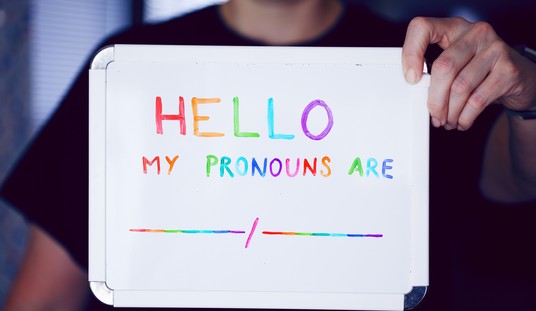
Published November 8, 2025
The decision in a nutshell
On November 6, 2025, the Sixth Circuit ruled that the Olentangy Local School District Board of Education (in Ohio) cannot enforce a policy that requires students to use classmates’ “preferred pronouns” (rather than pronouns tied to biological sex) or punish students for declining to do so.
The court found that the policy likely violates the First Amendment rights of students, because it constitutes compelled speech and viewpoint discrimination.
In its words:
“Students who refer to all classmates by the pronouns associated with their true sex … do not materially interfere with the learning environment and thus cannot be punished under the district’s policy.”
According to the majority opinion, the school district failed to show that the use of biological pronouns had ever caused a disruption, so punishing students for that use is unconstitutional under the standard set by Tinker v. Des Moines Independent Community School District.
Background & course of the case
What triggered it
-
In 2023, a parent asked the Olentangy district whether its anti‑harassment/anti‑discrimination policy would permit disciplining a student who refused to use a peer’s preferred pronouns. The district said yes—students could be disciplined for repeatedly using pronouns “contrary to the other student’s identity.”
-
The organization Parents Defending Education filed a lawsuit on behalf of students and parents who objected to the policy, arguing it violated the First and Fourteenth Amendments.
Prior rulings
-
A three‑judge panel of the Sixth Circuit in July 2024 upheld the district’s policy, finding that the school had shown the potential for disruption.
-
The full (en banc) court agreed to rehear the case, and reversed the prior panel’s ruling.
What the policy said
The district’s policy (or set of overlapping policies) required students to use other students’ “preferred pronouns” and prohibited gender‑related language that other students might consider insulting, demeaning, or unwanted based on gender identity.
The policy thus placed one of two burdens: either (1) use the preferred pronouns; (2) avoid using pronouns altogether (i.e., use names); or (3) face discipline. From the court’s view, this effectively compelled speech: students had to affirm a view they did not agree with (that gender identity, separate from biological sex, determines pronouns).
What the court held (and why)
Key holdings
-
The policy likely violates the First Amendment because it compels speech and imposes viewpoint discrimination: it requires one viewpoint (use of preferred pronouns) and forbids another (use of biological pronouns) in the context of ordinary student speech.
-
The school did not show that students’ use of biological pronouns had ever caused material and substantial disruption to the learning environment (the “Tinker test”). The court emphasized mere “discomfort” or “offense” is not enough to justify restriction.
-
The policy is overbroad: it reaches everyday speech (pronouns) and forces students to either accept a viewpoint or self‑censor (use no pronouns). The court said that is unconstitutional.
The reasoning in more detail
-
The court referenced the landmark decision in Tinker, noting that “undifferentiated fear or apprehension of disturbance is not enough to overcome the right to freedom of expression.”
-
The majority said that forcing students to use preferred pronouns is akin to compelling them to affirm a belief with which they disagree — e.g., the belief that gender identity can differ from biological sex.
-
The court noted that pronouns are integral to everyday speech and avoiding them entirely is not a realistic alternative.
-
The school argued that the policy was necessary to promote respect and protect vulnerable students (transgender, non‑binary). The court responded that while protecting students is a valid interest, it cannot be done by violating the First Amendment absent evidence of disruption.
Limitations & what the decision doesn’t do
-
The ruling does not say that schools cannot encourage use of preferred pronouns, or that they cannot require students to show respect. It says they cannot compel speech (i.e., force students to adopt specific pronouns) without satisfying constitutional tests.
-
It is a preliminary ruling (“likely violation” language appears) in an injunction context — the case may proceed further, and the district may have remedies or adjustments. The ruling is specific to the facts in the Olentangy case and the Sixth Circuit; other circuits may differ, and the matter may eventually reach the Supreme Court of the United States.
-
The decision does not broadly invalidate all pronoun‑use policies; it invalidates the specific policy as applied in this case because it fails constitutional muster.
 Implications
Implications
Legal implications
-
This is one of the most significant appellate rulings to date on pronoun‑use policies in K‑12 public schools in the U.S.
-
It sets a precedent (at least within the Sixth Circuit’s jurisdiction: Ohio, Kentucky, Michigan, Tennessee & part of others) that school districts must have concrete evidence of disruption before punishing students for refusing to use preferred pronouns.
-
It signals that policies that compel students to use particular speech (i.e., pronouns) will face greater First Amendment scrutiny.
-
For schools, it raises questions about how to craft policies that protect all students (including transgender or non‑binary) without infringing on speech rights of other students.
Social & cultural implications
-
The ruling comes amid a larger national conversation about gender identity, inclusion, and free speech. The pronoun‑use issue is a flashpoint.
-
Advocates for transgender and non‑binary rights may view the decision as a blow to efforts to enforce inclusive language in schools; conversely, advocates of free speech and viewpoint neutrality may see it as a victory.
-
For schools, the decision may increase uncertainty about how to balance protecting identity‑based dignity with constitutional rights of all students.
Practical implications for schools
-
School districts will likely revisit their pronoun policies. They may shift toward accommodation‑based models rather than mandatory pronoun‑use rules.
-
Schools may rely more on anti‑harassment/anti‑bullying rules (which are based on conduct, not compelled speech) rather than speech requirements.
-
Training for teachers, administrators, and students may need to include clearer guidance on what is allowed, what is not, and how to handle pronoun disputes without assuming one side must always “win.”
-
Legal risk for districts: If they discipline students solely for pronoun‑use (or refusal thereof) without showing disruption or a narrowly tailored policy, they may face lawsuits alleging First Amendment violation.
 Overall Takeaway:
Overall Takeaway:
The Sixth Circuit’s ruling reinforces a fundamental principle often overlooked in modern school policy debates: freedom of speech cannot be sacrificed on the altar of ideology. Schools are meant to educate, not compel students to affirm beliefs they do not hold. While protecting students from harassment is a legitimate goal, forcing speech undermines constitutional rights and sets a dangerous precedent where disagreement is criminalized.
This decision sends a clear message: parents and students retain the right to speak freely without fear of punishment for adhering to biological reality. In an era when ideological conformity is increasingly imposed in public institutions, the court has reminded Americans that the First Amendment is not optional — even in classrooms. Schools must focus on genuine harassment and learning, not policing speech to fit a political agenda.
SOURCES: REDSTATE – Federal Court Knocks Down Ohio School District Pronoun Policy
THE GATEWAY PUNDIT – U.S. Sixth Circuit Court of Appeals RULES Schools CANNOT FORCE Students to Use “Preferred Pronouns”
AP NEWS – Appeals court sides with parent group in fight over Ohio school district’s pronoun policy





Be the first to comment